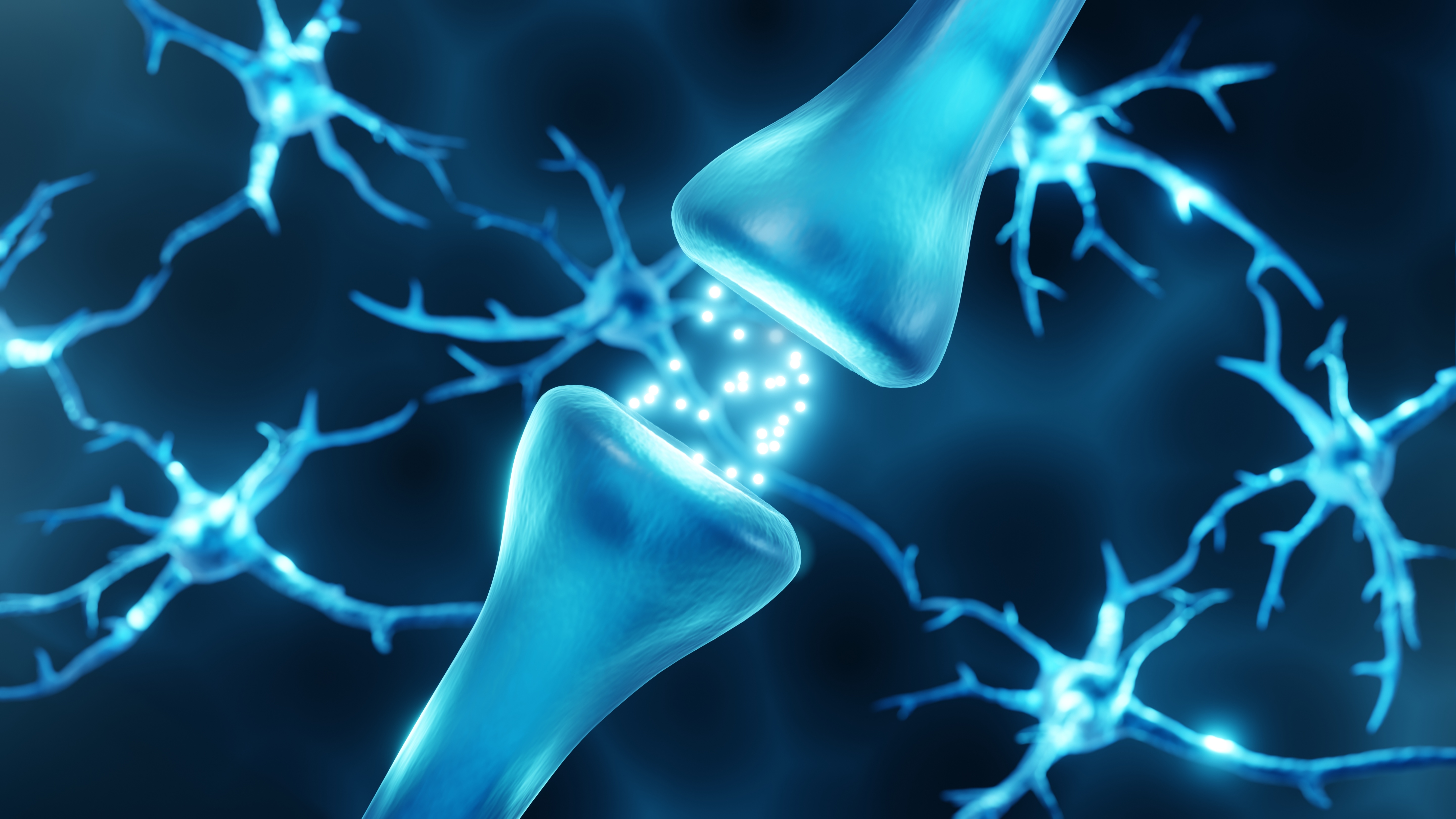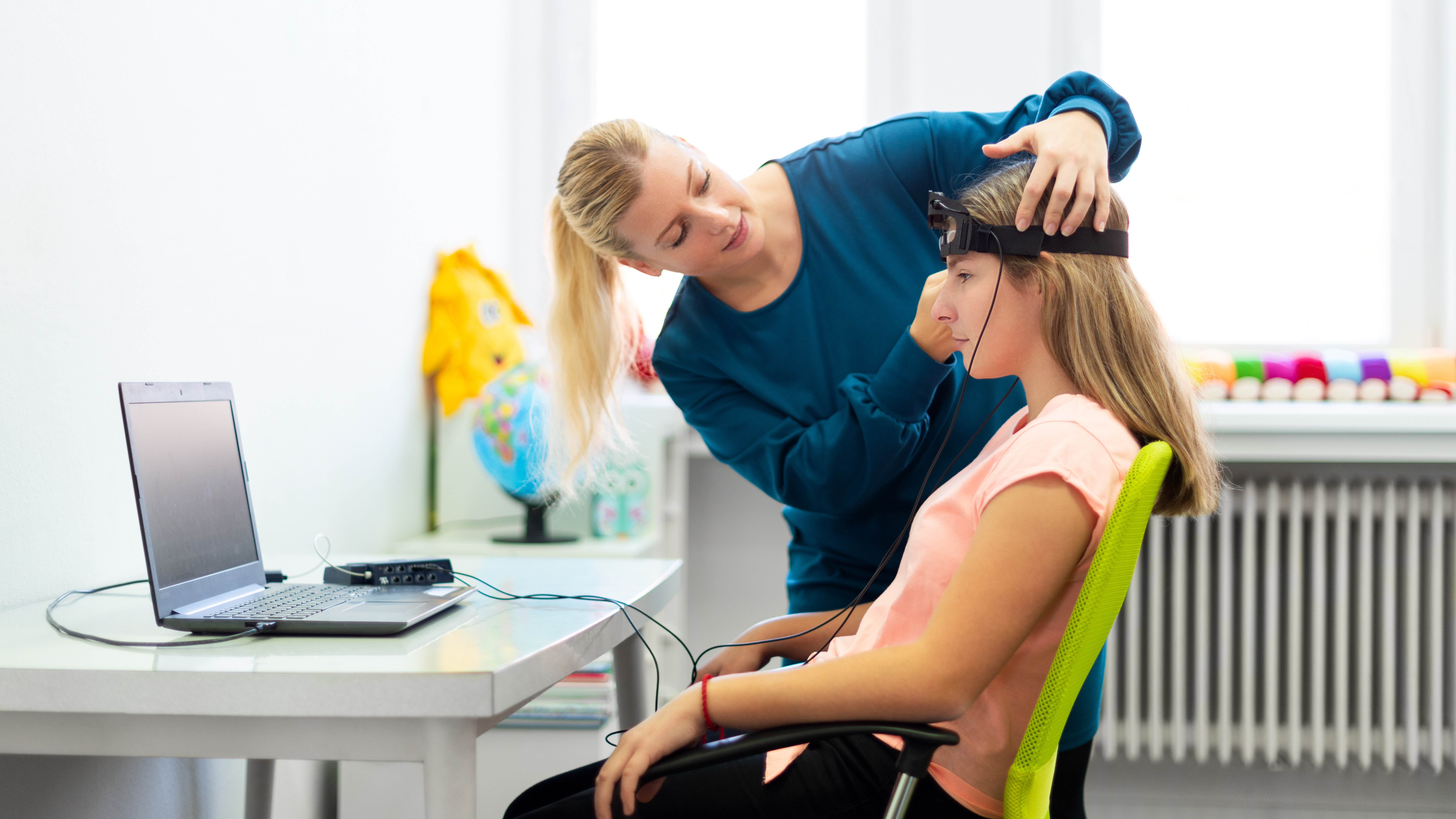Learn / Neurofeedback For Addiction Recovery: Letting Your Body Heal Your Mind
Neurofeedback For Addiction Recovery: Letting Your Body Heal Your Mind


April 27th, 2023| Clinically Reviewed by
Key Points
- Addiction can interfere with, and harm, the way our brain works.
- Neurofeedback measures brain activity and shows us how to harmonize our brain waves.
- Neurofeedback can help reverse damage for addiction and mental health disorders.
Neurofeedback can help those who need something different than a traditional way of healing during their recovery journey. With neurofeedback, you can see how your mind and body connect. And you’ll learn how you can shift your habits and ways of thinking to help you overcome addiction. You can start moving in the right direction to align your mind and body through neurofeedback treatment.
How Addiction Affects the Brain
The human brain is made up of cells called neurons1 that interact with each other in different networks. One neuron releases a neurotransmitter, like a message, into the gap called a synapse, which then attaches to the next neuron telling it what to do. And different networks, or circuits, of neurons are responsible for different functions in the body.

When you take drugs, they interrupt how this process occurs in the brain. Some drugs mimic the structure of natural neurotransmitters, and others cause neurons to release a lot of natural neurotransmitters.
Addiction starts when your brain begins to produce less of its natural neurotransmitters due to high, constant drug use. It becomes harder to find the same happiness from things you used to enjoy. You then need to use drugs to find that pleasure again. And oftentimes, you need to use higher and higher amounts to get that same joy.
This becomes a dangerous cycle. Fortunately, there are treatments that can help you find your passion for life again without the use of a substance.
What Is Neurofeedback?
Neurofeedback, also known as EEG biofeedback, measures brain activity with a few different devices like an electroencephalogram (EEG), sweat sensors, and heart rate monitors. Then, a trained professional can see where damage is in the brain. Your neurofeedback practitioner can work with you to get these harmed parts of the brain back to healthy functioning. It essentially harmonizes your brain waves. This treatment is non-invasive and does not use medication.
The main goal is to give you strategies to interfere with unhealthy thought patterns and help you take charge of your mind. This facilitates positive changes in thinking and behavior.
How It Works
Professionals at Luna Recovery explain that an electroencephalogram (EEG) uses sensors placed on your skin to gather information about brainwave activity2. It also collects data about your blood pressure, heart rate, and skin temperature. Practitioners then locate where there’s damage in the brain due to drug use, or other conditions. Knowing this, they can help you correct these faulty neural pathways.
What Happens During Neurofeedback Therapy?
During a neurofeedback session, which typically lasts about an hour, you’ll likely wear a cap on your head with different electrodes placed on it. These electrodes connect to a machine to monitor your brain’s activity.

After this is all set up, your practitioner will do activities with you to stimulate different areas of your brain. This could include watching a movie or playing a video game; however, your brain activity directly affects what’s happening on the screen.
For example, your screen may only be at full brightness when your brain waves are interacting in unison. If you lose focus and your brain activity scatters, the screen will dim. Simple exercises like this not only show you how your brain is working, but they also begin to teach you how you can control it.
Are There Risks Associated with Neurofeedback Treatment?
Neurofeedback is generally a safe form of treatment because it’s non-invasive. It is possible, but unlikely, to experience some side effects during sessions, like anxiety, fatigue, and headaches.
Neurofeedback for Addiction Treatment
Addiction typically creates irregular brain waves3, and each drug creates different types of damage in different areas. Luckily, we can correct these irregularities through neurofeedback.
During sessions, you’ll pay close attention to your thoughts. Outside of sessions, you can practice what you’ve learned to help you manage your feelings or cravings in real life. You’ll learn skills to adapt to any new situation that life throws at you. Throughout treatment, you can train your brain to become as healthy as someone without addiction4.
Neurofeedback and Mental Health
Neurofeedback is extremely useful for not only addiction recovery, but also for mental health disorders5. It’s an effective treatment for common disorders like anxiety and depression6. But neurofeedback can also treat co-occurring disorders and other singular diagnoses:
- Attention deficit/hyperactivity disorder (ADHD)
- Insomnia
- Schizophrenia
- Post-traumatic stress disorder (PTSD)
- Obsessive-compulsive disorder (OCD)
By disrupting unhelpful thought patterns, you can manage the emotions that come with your mental health condition. And neurofeedback can offer a good alternative to medication, especially if medications or other treatment plans haven’t worked for you in the past.
A Different Way of Healing
You have resources available to heal from addiction or mental health issues. Neurofeedback can give you a whole new perspective on life. You can attune your mind and body to connect with yourself and the world around you. Discover how rehabs with neurofeedback can help you start living fully.
-
Abuse, N. I. on D. (--). Drugs and the brain. National Institute on Drug Abuse. http://nida.nih.gov/publications/drugs-brains-behavior-science-addiction/drugs-brain
-
Allaire, B., & Director, M. d-Medical. (n.d.). Neurofeedback and addiction: Resilience of the brain in recovery. Retrieved April 6, 2023, from https://lunarecovery.com/therapy/neurofeedback-and-addiction/
-
Peniston, E. G., & Kulkosky, P. J. (1999). Neurofeedback in the treatment of addictive disorders. In Introduction to Quantitative EEG and Neurofeedback (pp. 157–179). Elsevier. https://doi.org/10.1016/B978-012243790-8/50008-0
-
Alpha-theta Neurofeedback therapy :A non-invasive treatment for addiction and post-Traumatic Stress disorder*—ProQuest. (n.d.). Retrieved April 6, 2023, from https://www.proquest.com/openview/a839875293b74a79bb87497b90b8be13/1?pq-origsite=gscholar&cbl=55194
-
Marzbani, H., Marateb, H. R., & Mansourian, M. (2016). Neurofeedback: A comprehensive review on system design, methodology and clinical applications. Basic and Clinical Neuroscience, 7(2), 143–158. https://doi.org/10.15412/J.BCN.03070208
-
Hammond, D. C. (2005). Neurofeedback treatment of depression and anxiety. Journal of Adult Development, 12(2–3), 131–137. https://doi.org/10.1007/s10804-005-7029-5
Return to Resource Library
Our Promise
How Is RehabPath Different?
We believe everyone deserves access to accurate, unbiased information about mental health and addiction. That’s why we have a comprehensive set of treatment providers and don't charge for inclusion. Any center that meets our criteria can list for free. We do not and have never accepted fees for referring someone to a particular center. Providers who advertise with us must be verified by our Research Team and we clearly mark their status as advertisers.








